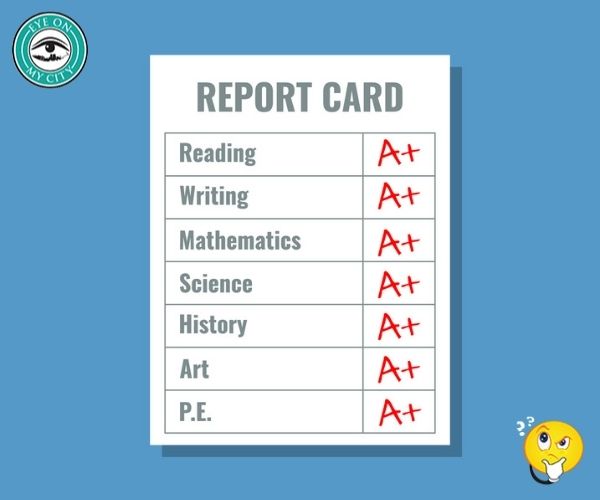If you thought inflation ended with gas, groceries and housing, think again. Grade Point Average (GPA) is a familiar term in American education, representing a student’s academic performance. While the GPA system has been widely accepted and adopted, it has come under scrutiny in recent years due to a phenomenon known as GPA inflation. Could this inflation be an extension of the American “everyone wins” mentality, a cultural ethos that places a high value on self-esteem and positive reinforcement.
GPA inflation refers to the gradual increase in average GPAs over time while other measures of academic performance has consistently declined. Many high schools and colleges have reported a consistent rise in the average GPA of their students, which has led to concerns about the reliability and fairness of the grading system. This trend can be attributed to several factors, including grade inflation in K-12 education, altered grading standards, and a shifting perception of what constitutes success.
Grade inflation in K-12 education is driven by a desire to boost students’ self-esteem and motivation. The notion of the “everyone wins” mentality has permeated schools, with some educators believing that higher grades will enhance students’ self-confidence and enthusiasm for learning. However, this approach may inadvertently create a false sense of achievement, potentially harming students’ preparedness for the challenges they will face in the real world, which in turn could be leading America into future issues with a generation that will lead this nation wholly unprepared for the realities of life outside the classroom.
The “everyone wins” mentality has deep cultural roots in the United States. It manifests in various aspects of American life, including sports, education, and even the workplace. The desire to protect self-esteem, foster inclusivity, and provide positive reinforcement has led to a culture of minimizing failure and promoting a sense of accomplishment, sometimes irrespective of merit.
In sports, participation trophies and medals for all players, regardless of performance, have been criticized for sending the message that victory and defeat are less important than participation itself. This approach, while well-intentioned, may inadvertently hinder the development of resilience and a strong work ethic in young individuals.
In education, the “everyone wins” mentality has influenced not only grading practices but also the ways in which achievement is measured. The traditional emphasis on rigorous standards and academic excellence may be compromised when educators and institutions place a higher value on boosting students’ self-esteem through inflated GPAs. While self-esteem is crucial, it should be balanced with a genuine assessment of a student’s capabilities and readiness for future challenges.
The correlation between GPA inflation and the “everyone wins” mentality is evident. As society places more emphasis on ensuring that no one feels like a failure, grading practices in schools and colleges have shifted to accommodate this ethos. The result is a grade point average that may not accurately reflect a student’s true academic abilities, making it harder for colleges and employers to gauge an applicant’s readiness for the next stage in life.
What does this mean for America? Only time will tell, but one could argue that the trend is alarming. The values and work ethic being instilled in future generations could affect America’s competitive position on the global stage. The only way to counteract this is through a complete paradigm shift when it comes to American education. On a most basic level, grading standardization must be addressed to minimize GPA inflation. And, on a complicated, multi-faceted level, American education system design should be consistently reevaluated to answer the questions:
- Is the American education system working anymore?
- Is it developing our future generations to be persistent, tenacious, industrious and hardworking?
- Is it adapting to ensure that American education remains relevant and effective?
The future of America is at stake.


